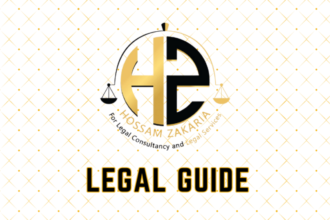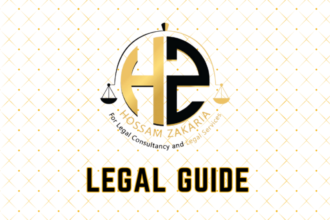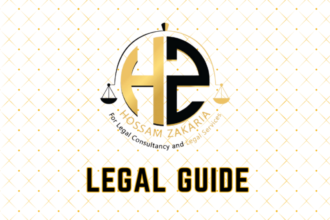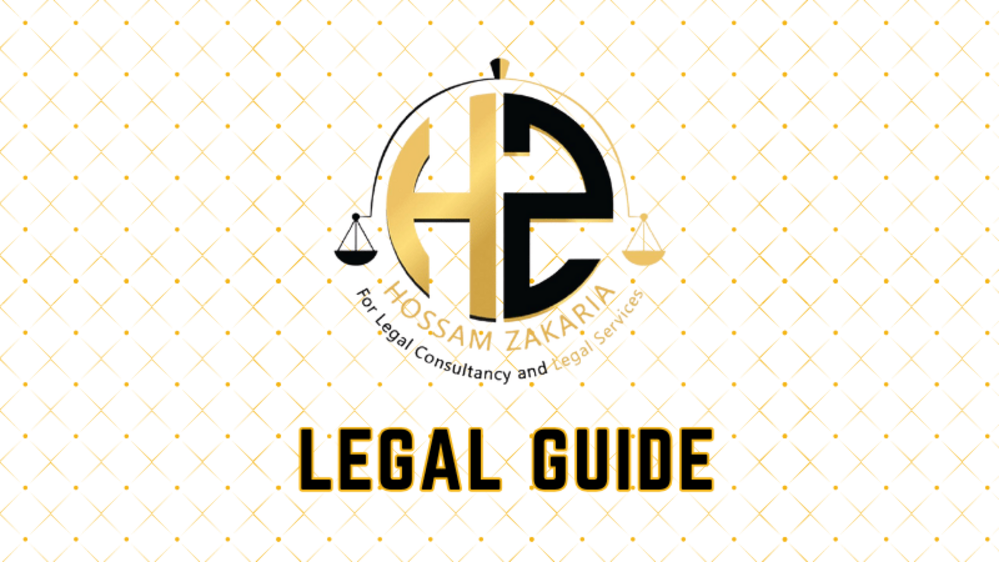Introduction: Why Borrower Protection and Bank Accountability Matter for UAE Businesses in Saudi Arabia
In recent years, the close commercial integration between the UAE and Saudi Arabia has reached unparalleled heights, especially with UAE businesses increasingly engaging in cross-border financing, investment, and banking operations within Saudi borders. The evolution of Saudi financial regulations — notably the Saudi Central Bank’s updated directives and the implementation of specialized borrower protection frameworks — has profound implications for UAE enterprises active in the Kingdom. Staying abreast of these changes is no longer a matter of simple compliance; it is an essential shield for your assets, reputation, and continuity in an increasingly complex regulatory environment.
Saudi Arabia’s renewed borrower protection landscape, propelled by a series of banking regulations and consumer protection mandates, establishes clear expectations for both financial institutions and borrowers. Simultaneously, these rules sharpen the accountability of banks to their commercial clients and the authorities. For UAE businesses, HR executives, compliance managers, and legal counsel, understanding these developments is not just a legal necessity — it is a strategic business imperative. This article provides in-depth, consultancy-grade analysis of recent Saudi regulations affecting UAE entities, practical compliance strategies, and risk mitigation insights that go far beyond routine legal summaries or blog content. It is designed to serve as your trusted guide in navigating Saudi’s evolving business banking environment in 2025 and beyond.
Table of Contents
Click on the section to navigate:
- Saudi Legal Framework: Overview of Key Borrower Protection Laws
- How UAE Businesses Are Exposed to Saudi Banking Regulations
- Detailed Breakdown of Borrower Protection and Bank Accountability Rules
- Key Differences: Previous vs. Updated Saudi Borrower Protection Laws
- Practical Application: Case Studies and Example Scenarios
- Risks of Non-Compliance and Strategies for UAE Companies
- Professional Recommendations for UAE Business Leaders
- Conclusion: Navigating Change and Staying Ahead in Saudi Banking Compliance
Saudi Legal Framework: Overview of Key Borrower Protection Laws
The Evolution of Borrower Protection in Saudi Arabia
Saudi Arabia’s banking and finance ecosystem has undergone significant transformation, driven by both Vision 2030 economic initiatives and the need to align with international best practices. Key reforms were introduced via a series of directives by the Saudi Central Bank (SAMA, formerly SAMA), including:
- Banking Consumer Protection Principles (2016, updated 2020) — Designed to reinforce the fair treatment of both retail and commercial borrowers, ensuring transparency in fees, interest rates, and the resolution of disputes.
- The Finance Companies Control Law (2012, as amended) — Regulates the activities of all non-bank finance companies, with a focus on responsible lending and enhanced disclosure requirements.
- Dispute Settlement Committees Regulations (2023) — Specify updated procedures for claims by businesses against banks and finance providers, emphasizing speed, neutrality, and borrower rights.
The Consumer Protection Principles are particularly consequential for UAE companies with operations, financing, or partnerships in Saudi Arabia, as they formalize borrowers’ right to information, representation, and redress, and set out specific bank obligations on product disclosure, risk warning, and data confidentiality.
The Saudi Central Bank’s Oversight
SAMA’s regulatory authority extends over all licensed banks in Saudi Arabia, including branches of foreign banks. It issues mandatory circulars, monitors compliance, and can levy penalties under Article 25 of the Banking Control Law. For UAE businesses, this means that contractual arrangements and dispute mechanisms must comply with SAMA’s borrower protection rules and Saudi dispute resolution norms — regardless of where the mother company is incorporated.
How UAE Businesses Are Exposed to Saudi Banking Regulations
Types of Exposure
UAE businesses are increasingly interfacing with Saudi banking law in several contexts:
- Cross-border lending or syndicated finance: UAE parent companies (or subsidiaries) accessing credit or finance in the Saudi market, often with collateral located within the Kingdom.
- Joint ventures and mergers: Engagements that require onboarding to local banking facilities and subjecting the UAE entity to Saudi banking customer protection rules.
- Receivables and payments: Participation in Saudi payment systems or escrow arrangements, which come under SAMA oversight.
- Dispute resolution with Saudi banks: Claiming breach, overcharging, or lack of disclosure, UAE clients must utilize Saudi dispute mechanisms as set out in SAMA or Central Bank Dispute Committees protocols.
Why Comprehension Is Vital
UAE companies — especially those accustomed to the UAE’s federal financial laws — must not assume harmonization with Saudi regulation. The lack of understanding, or non-compliance, can result in severe financial, reputational, and operational risks, including regulatory penalties and restriction of banking privileges in Saudi Arabia. Moreover, with the growth of bilateral UAE-Saudi economic relations, Saudi compliance now indirectly influences licensing, tax status, and even the ability to repatriate profits for UAE enterprises.
Detailed Breakdown of Borrower Protection and Bank Accountability Rules
Key Provisions of Saudi Borrower Protection Framework
The latest SAMA circulars and updated consumer protection guidelines codify a comprehensive set of rights for commercial borrowers and enforce bank accountability through enforceable standards. Core provisions include:
- Transparent Disclosure Obligations: Prior to commitment, all loan terms (fees, APR, security, repayment, risk factors) must be disclosed in plain language, with a signed acknowledgment.
- Right to Pre-Contractual Information: Borrowers have the right to request, and receive, draft contracts, projected repayment tables, and policy documents for review before signing.
- Confidentiality of Customer Data: Banks must protect all borrower information and may only share it with third parties in limited, defined circumstances (as set out under Article 16, Consumer Protection Principles).
- Mechanisms for Redress: SAMA mandates a two-tier complaint system: in-house bank dispute resolution followed by escalation to the SAMA’s Dispute Settlement Committee if unresolved.
- No Unilateral Change: Banks may not unilaterally amend material contract terms (such as interest, principal, or security) without explicit borrower consent and updated disclosure.
- Enforcement and Monitoring: SAMA’s Banking Supervision Department maintains the authority to audit banks, investigate complaints, and impose administrative penalties or corrective requirements for violations.
- Equal Treatment of Foreign Clients: All protections apply equally whether the borrower is a Saudi or foreign entity, including UAE-registered businesses or branches.
Bank Accountability: Sanctions and Duties
Banks are held to a high standard of conduct. Accountabilities include:
- Duty of Care: Banks must act in good faith, avoid conflicts of interest, and ensure staff competency (Article 4, Consumer Protection Principles).
- Defined Complaint Timelines: All grievances must be acknowledged within 5 working days and resolved within 15, unless otherwise agreed.
- Consequences for Breaches: Penalties under the Banking Control Law include sanctions, restitution to affected borrowers, and — in serious cases — restrictions on new lending or suspension of officers.
Key Differences: Previous vs. Updated Saudi Borrower Protection Laws
For UAE businesses familiar with pre-2020 Saudi practice, the enhancements are significant. Below is a comparative overview:
| Aspect | Pre-2020 Practice | 2020-2025 Updated Law |
|---|---|---|
| Disclosure Standards | Largely at banks’ discretion; generic product sheets | Comprehensive, legally binding disclosure; mandatory pre-contract review |
| Complaint Mechanism | Informal, often internal, with limited escalation | Mandatory multi-layer dispute process, external review by SAMA Committees |
| Penalties for Banks | Administrative warning, rarely financial | Restitution, fines, operational restrictions, publicized sanctions |
| Coverage of Foreign Borrowers | Ambiguous | Equal protection for all licensed business entities (including UAE) |
| Requirement for Data Confidentiality | No formal legal obligation | Statutory duty, penalties for breaches |
Practical Application: Case Studies and Example Scenarios
Case Study 1: Cross-Border Syndicated Loan Transaction
Background: A UAE-based construction firm enters a syndicated credit facility led by a Saudi bank to finance a Riyadh infrastructure project. Term sheets was jointly reviewed in both Dubai and Riyadh.
Legal Issues: The lead Saudi bank must deliver full pre-contractual disclosures (including all fee structures, floating rate mechanisms, and covenant requirements) in compliance with Saudi law, even if the UAE company has already reviewed the documents offshore. Any attempt to enforce hidden clauses or change contract terms without UAE borrower approval risks regulatory penalty and nullification of those terms by SAMA dispute committees.
Consultancy Insight: UAE entities should insist on explicit side letters confirming SAMA conformity. All documentation must be available in both Arabic and English to meet statutory Saudi requirements.
Case Study 2: Dispute Over Unauthorized Information Disclosure
Background: A Dubai-headquartered logistics provider discovers its Saudi banking partner shared sensitive project finance details with an unrelated party.
Legal Issues: Under Article 16 of SAMA’s Consumer Protection Principles, this is a clear violation. The UAE client is entitled to lodge a direct complaint first internally, then escalate to the SAMA Dispute Settlement Committee. The bank faces fines, mandatory remedial action, and potential exposure to damages.
Consultancy Insight: UAE clients should create an internal protocol for monitoring bank communications and exercising swift complaint escalation if breaches are suspected.
Case Study 3: Refusal to Process Banking Complaint
Background: A UAE-owned manufacturing subsidiary complains about excessive and unexplained late fees applied by its Saudi bank, only to have the grievance ignored for weeks.
Legal Issues: The bank’s failure to acknowledge the complaint within the mandated 5-day window and to resolve it within the statutory 15 working day period constitutes a regulatory breach. The company may seek financial compensation and official censure of the bank.
Consultancy Insight: UAE businesses should document all correspondence and use SAMA’s online complaint portal to evidence timelines for regulatory review.
Risks of Non-Compliance and Strategies for UAE Companies
Main Risks for UAE Entities in Saudi Banking Operations
- Financial Penalties: Fines are indexed to transaction value and can be substantial, with repeat violations subject to increased sanctions.
- Restricted Access: Banks found in violation on behalf of UAE clients may deny further lending or close accounts, jeopardizing ongoing operations.
- Reputational Damage: Regulatory findings are increasingly transparent; adverse findings are readily shared with other GCC authorities, affecting creditworthiness and market reputation.
- Delays in Legal Redress: Failure to comply with Saudi procedural requirements may slow or frustrate legitimate UAE claims in case of disputes.
Compliance Strategies: Best Practices for UAE Businesses
- Due Diligence Pre-Engagement: Secure professional legal opinions on every Saudi banking facility or agreement, referencing SAMA and MOJ guidance.
- Bilateral Contractual Safeguards: Always include SAMA compliance provisions and Arabic-language documentation in contracts.
- Internal Training: Routinely train front- and back-office staff on Saudi borrower protection rules if managing Saudi facilities.
- Complaint Protocols: Establish internal escalation pathways to monitor deadlines, ensure timely complaints, and leverage SAMA’s digital grievance systems.
- Regular Policy Reviews: Periodically review all cross-border agreements for updates in Saudi regulation, using MOJ and SAMA official portals as reference.
- Data Protection Review: Appoint a compliance officer to monitor and audit all data-sharing agreements to ensure full conformance with Article 16 of the Consumer Protection Principles.
Table: Sample Compliance Checklist for UAE Businesses in Saudi Banking Arrangements
| Compliance Area | Checklist Item |
|---|---|
| Documentation | Are all contracts SAMA-compliant, bilingual, and fully disclosed? |
| Internal Controls | Is there an audit trail for all communications with Saudi bank partners? |
| Complaint Redress | Is there a clear timeline and escalation protocol internally for raising banking grievances? |
| Staff Training | Have staff attended a most recent Saudi regulation workshop/webinar? |
| Monitoring Regulatory Change | Are there procedures for monthly legal/regulatory updates? |
Professional Recommendations for UAE Business Leaders
Legal Advisory for Executives and In-House Legal Teams
- Invest in Saudi Legal Expertise: Retain or consult with local Saudi legal professionals or experienced UAE consultants who specialize in cross-jurisdictional issues. Even robust UAE policies may be inapplicable in Saudi context without jurisdiction-specific adaptation.
- Contractual Integration: Always incorporate express references to the latest SAMA and Consumer Protection Principles in ALL Saudi-facing finance agreements or corporate joint ventures.
- Pre-Litigation Mediation: Develop stepwise internal mediation mechanisms to seek early settlement of banking disputes, reserving formal SAMA escalation for intractable cases only to preserve relationships and mitigate costs.
- Regulatory Reporting Readiness: Regularly review company reporting and compliance processes for alignment with SAMA audit and enforcement protocols, bearing in mind increased scrutiny on cross-border transactions.
- Update Internal Policies: Ensure that corporate handbooks, employee training modules, and compliance checklists reflect the newest Saudi legal updates, including the Dispute Settlement Committees Regulations of 2023-2025.
Conclusion: Navigating Change and Staying Ahead in Saudi Banking Compliance
The Saudi regulatory landscape for bank accountability and borrower protection now stands among the most sophisticated in the region. For UAE businesses, this creates new obligations — but also unprecedented safeguards and dispute recourse. The key is not only to avoid non-compliance penalties, but also to recognize the competitive advantage afforded to those who master the intricacies of Saudi regulations and proactively update their protocols. Diligent preparation, regular training, and the integration of the latest Saudi and SAMA requirements into core operational documents are now vital for every executive, legal counsel, and risk manager operating in the Kingdom.
Looking forward, with both SAMA and UAE regulatory bodies increasing cross-border cooperation, legal updates in Saudi Arabia (including those forecast for 2025) will likely become even more harmonized with best international practices. UAE businesses should therefore adopt a dynamic compliance culture, relying on credible legal counsel and leveraging the latest resources from the UAE Ministry of Justice and the Federal Legal Gazette. By doing so, they will not only preserve their commercial interests but also position themselves as trusted, enduring partners in the GCC’s rapidly evolving economic landscape.



